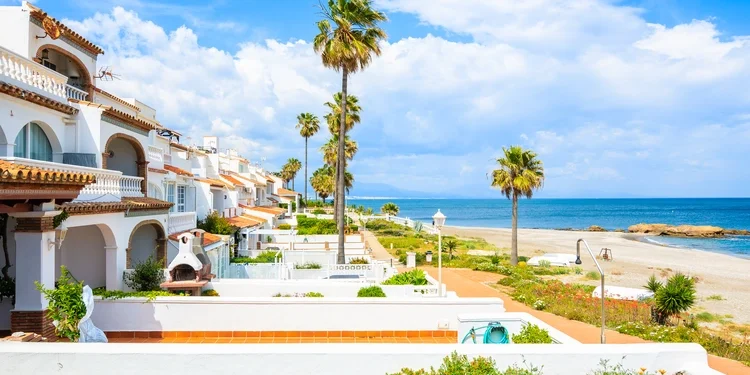Today, more than 120 of your fellow readers interested in exploring their best options for spending time and money in Portugal are gathering on the Algarve for this year’s Live And Invest Overseas Portugal Conference.
They’re set to benefit from the collective wisdom of our assembled experts and expats who’ll be sharing the inside track on topics including residency and citizenship, health care and health insurance, taxes, and real estate in Portugal.
Key starting-point question for the property conversation is sure to be one we get all the time.
Should you rent or buy a home?
I recommend renting, at least at first, to give yourself a chance to try your chosen destination on for size.
Renting keeps you flexible. The costs of buying and selling a piece of property in Portugal and elsewhere in Europe can be steep. You want to be sure you’ll be happy sticking around indefinitely before committing.
The most important thing to understand about finding rental accommodation (short- or long-term) in any foreign country is that you shouldn’t do it long distance. Not if you want to get a good deal and avoid surprises.
For, to get a good deal, you must shop beyond the internet market, and, to do that, you must have feet on the ground, either yours or those of a reliable local contact you trust.
You can begin your search long distance, googling “For Rent” opportunities in the place where you’d like to spend time. You’ll find rental houses and apartments listed either by other gringos (that is, fellow non-locals) or by locals with the wherewithal to advertise their rentals online.
In other words, this route leads to the high-ticket and priced-for-the-gringo-market properties.
Google “Se Alquila” (in a Spanish-speaking market), “A Louer” (where folks speak French), or “Para Alugar” (where the language is Portuguese), and you improve your chances of penetrating the market to a more local level.
However, the real deals never make it anywhere a search engine could find them.
The best rentals can be found scanning grocery store bulletin boards, asking your lunch waitress and taxi driver for tips, scouring the local-language newspaper classifieds, or courtesy of your friend’s son’s teacher’s cousin who happens to be moving out of his apartment and would be willing to transfer the lease to you.
Finding these kinds of leads is tough. Following through to vet them is even tougher, especially if you don’t speak the local language.
Start Your New Life Today, Overseas
This is why you’ll hear such disparate accounts of what it costs to rent a home in any foreign market. The cost of a rental sourced on an English-language agent’s website can be two or three times greater than the cost of a rental sourced via a local friend’s cousin.
You don’t have to care about that markup, and maybe you don’t. No one wants to be taken advantage of, but understand, too, that there’s nothing wrong with opting to spend a little more to make the experience a little less hassled. How much less hassled depends on how much more you’re comfortable paying and how much time and good humor you’re willing to put at risk wading through the hassle.
An expat we spoke with in Valencia explained that he’s paying 1,600 euros per month for his apartment. He wanted a big space for his family and outdoor space for his children.
“I know I could have found something for less,” he said, “but we didn’t want to wait longer for our move.”
What else should you keep in mind when trying to find a place to rent to be your new home in another country?
Probably you understand that purchasing real estate overseas, especially in an emerging or unregulated market, is nothing like purchasing real estate back home in, say, the United States. It may not have occurred to you, though, that the same goes for renting overseas. Just as when buying a piece of property in a foreign market you can’t take anything for granted, neither can you when renting one.
In some parts of the world, “unfurnished” means no stove in the kitchen and no lighting fixtures anywhere.
It can even mean no flooring or kitchen cabinets. Friends in Paris moved from one rental to a new one. They’d had to install flooring in the bathroom of the apartment where they had been living. They pulled it up and took it with them to their new place. That’s common.
Some markets, you, as the renter, are responsible even for structural repairs (cracks in the façade, for example, or a leaky roof).
And it’s always possible that the guy offering to rent you a house doesn’t, in fact, own that house. Maybe he’s subletting to you (which is illegal in some countries) or maybe it’s his friend’s house and he just happens to have a key.
Don’t sign a rental agreement until your attorney reviews it first (especially if it’s written in a language you don’t read). And don’t be surprised, if you’re renting on a very local level, if you’re not asked to sign anything at all. If the cousin of a friend introduces you to his neighbor whose house you decide to rent, the deal may be struck with a handshake.
Start Your New Life Today, Overseas
Here are other key How To Rent Overseas pointers:
Understand what’s included in your monthly rent. Make sure the lease establishes clearly what’s included in your rent and what’s not—building or homeowner’s association fees, water expense, utilities, phone, internet, etc.
Understand how, where, and to whom you pay which bills each month. Maybe you deposit the rent directly into the owner’s bank account. Maybe you pay a rental manager. Maybe you have to hand-deliver the check to your landlord. In
Europe, rent is often paid by direct debit from your local bank account, which means you need a local bank account. And, often, building and HOA fees are paid to a different person or organization and by a separate check than the rent.
Ask what documentation you’ll have to produce to be able to rent. In France, you need to satisfy the landlord that you can afford to become his tenant, and, because it’s France, you do this by creating a thick dossier of financial documents, bank statements, pay stubs, reference letters, bank letters, guarantor letters, etc. It’s a serious effort that you can’t undertake lightly.
Understand when the rental period begins. The start date of your rental (that is, the date from which you’re paying rent) doesn’t always coincide with the date when you take up occupancy. Here in Panama City, for example, we paid rent for two weeks in advance of our moving in to the apartment we rented for our first year as full-time residents. The market was so competitive at the time (2009) that we had to agree to pay half a month’s rent in advance of the first of the month we moved in. If we weren’t willing to do that, the landlord had a line of folks behind us who were.
Armed with these fundamentals, you’re ready to go shopping…
Until next time,

Kathleen Peddicord
Founding Publisher, Overseas Opportunity Letter










